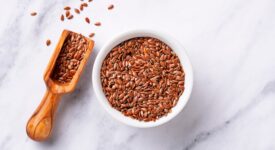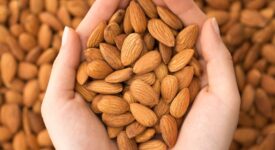Bones provide a variety of functions in the body, including anchoring muscles, protecting organs, and creating structure. While it’s crucial to develop strong and healthy bones during infancy and adolescence, there are things you can do as an adult to maintain bone health.
Why is bone health so essential?
New bone is always being formed and old bone is constantly being broken down in your bones. Your bone mass increases when you’re young because your body produces new bone more quickly than it degrades existing bone. Around age 30, the majority of people reach their peak bone mass. Following that, you continue to lose slightly more bone mass than you gain as a result of bone remodeling.
The amount of bone mass you have by the time you turn 30 and the rate at which you lose it afterward determine how likely it is that you will develop osteoporosis, a disorder that causes bones to become brittle and weak. The more bone you have “in the bank” and the higher your peak bone mass, the less probable it is that you will get osteoporosis as you get older. there are following seven ways to become bone strong.

1. Take a lot of vitamins D and K
It’s crucial to have enough vitamin D and vitamin K to develop healthy bones. Your body can better absorb calcium with vitamin D. People who do not obtain enough vitamin D are more likely to experience bone loss and have reduced bone density. You might be able to acquire enough vitamin D via food sources such as fatty fish, liver, and cheese as well as sunlight exposure. To keep their levels at their best, some people need to take daily supplements containing up to 2,000 IU of vitamin D. By altering osteocalcin, a protein involved in bone formation, vitamin K2 promotes bone health by allowing it to bind to minerals in bones and stop calcium loss from bones.
Liver, eggs, meat, fermented foods like cheese and sauerkraut, as well as natto, a soybean product, are all sources of K2.
2. Keep Your Weight Stable and Healthy
Bone health can be supported by keeping a healthy weight. Reduced bone density and bone loss in older persons are primarily caused by low body weight. In addition to lowering bone quality, obesity raises the chance of fractures from stress brought on by excess weight. Additionally, losing weight and gaining it back frequently might harm your bones.
3. Stay away from very low-calorie diets
Cutting calories too drastically can damage your bones. According to studies, eating less than 1,000 calories a day can result in a decrease in bone density. Follow a healthy, balanced diet that contains at least 1,200 calories each day to develop and maintain strong bones. To maintain bone health, it should contain a lot of protein and foods high in vitamins and minerals.
4. Eat Enough Protein
Protein consumption is essential for strong bones. Protein makes up around half of the bone. Low protein consumption reduces calcium absorption and could have an impact on how quickly bones develop and break down. But take care. Too much protein can cause bones to lose calcium. It is ideal to keep your daily protein intake to about 3.5 ounces and complete your diet with a variety of plant foods and enough calcium.
5. Eat some vegetables
Vegetables are one of the best sources of vitamin C, which stimulates the creation of bone-forming cells, making them excellent for your bones. According to several research, the antioxidant properties of vitamin C may help shield bone cells from harm. Consuming green and yellow vegetables has been associated with a rise in bone mineralization in early childhood and the preservation of bone mass in young adults. Vegetable consumption is also advantageous for older ladies.
6. Eat a Diet Rich in Omega-3 Fats
It is well-recognized that omega-3 fatty acids have anti-inflammatory properties. They also aid in preventing bone deterioration as you age. Chia seeds, flaxseeds, and walnuts also contain omega-3 fatty acids, as do fatty fish like mackerel, salmon, and sardines.
7. Engage in weight-bearing exercises and strength training
High-impact or weight-bearing exercise serves to encourage the production of new bones. It boosts the amount of bone formed during the years of peak bone growth, according to studies on children. In elderly adults, it may also aid in halting bone deterioration. Exercise that builds muscle may help both younger and older women prevent bone loss by build







